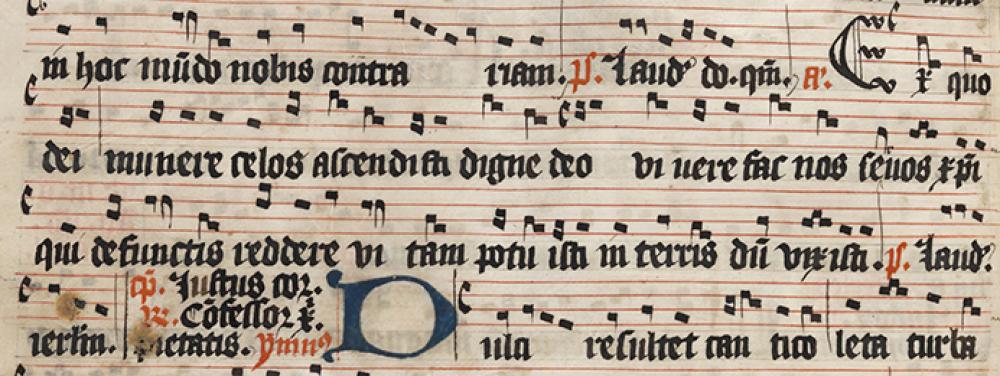Ex quo Dei munere
| TYPE | 1 - Chant-like Melody |
| TOPIC | Religious |
| TUNE STRUCTURE | motivic |
| VERSE STRUCTURE | 1v 7l |
| KEY SIGNATURE | Mode 7 |
| TONAL CENTRE | G |
| INCIPIT | GDFEFGGAGGFA |
| GENRE | Antiphon |
| TEXT SOURCE | Clondalkin Breviary: Office of St Canice TCD MS 78, f. 168v |
| TUNE SOURCE | as above |
| FIRST LINE | Ex quo Dei munere |
| NOTATED INCIPIT | |
| The Clondalkin Breviary consists of chants for the Divine Office which date from the second half of the fifteenth century. Senan Furlong notes that, ‘[a]though it was also used at Clondalkin near Dublin, its original provenance may be the Ossory / Kilkenny area. […] Its calendar contains entries for 27 Irish saints in the original hand. In the sanctorale, which contains material for the celebration of the feastdays of saints, there are notated offices for Sts Brigid, Patrick, and Canice, all of them incomplete owing to the loss of the original folios’. See Senan Furlong, ‘The Clondalkin Breviary’, The Encyclopaedia of Music in Ireland, eds. Harry White and Barra Boydell, 2 vols. (Dublin, 2013), I, p.209. | |
Ex quo Dei munere celos ascendisti, digne Deo vivere fac nos servos Christiqui defunctis reddere vitam potuistiin terris dum vixisti.
Since by the gift of Godyou have ascended to the heavens,make us, the servants of Christ,live worthily for God,you who could give life back to the deadwhen you lived on earth.


